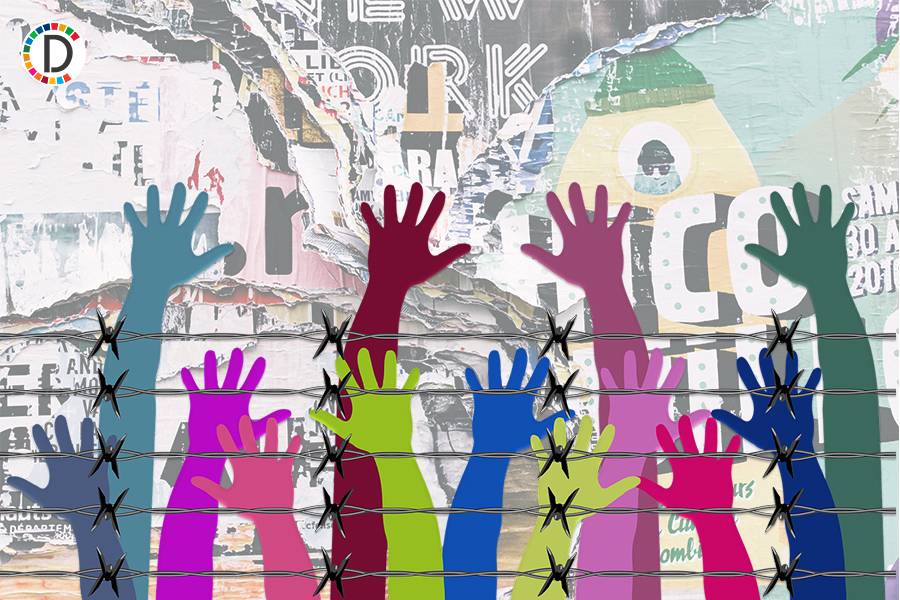Chile's Boric attempts relaunch as honeymoon ends abruptly

- Country:
- Argentina
President Gabriel Boric of Chile is attempting to relaunch an administration that has plunged in popularity less than two months since he made headlines around the world for becoming the country's youngest president and a possible symbol for a resurgent left wing in South America.
As opinion polls show Boric with a marked erosion of support since taking office, the 36-year-old president has declared the transition period has ended and called on his ministers act with "a sense of urgency" to deal with the demands of Chileans.
"There has been a sort of re-launching of his narrative," said Eugenio Tironi, a Chilean sociologist. "There has been a change in tone, a change in role and the government is suddenly much more active." Boric said this week he was analysing the possibility of allowing the military to assist in law enforcement duties in the violence-ridden south of the country. Dozens of truckers are blocking key roads demanding action to assure their safety in La Araucanía and Biobío regions, some 600 kilometres south of Chile's capital.
Boric's apparent willingness to appeal to the military for assistance in domestic security issues, which he has resisted in the past, follows his acknowledgement that his almost two months in office have not exactly gone as he hoped after he swept into the presidency with 56 per cent support in a December runoff election.
"There have been difficulties and there have been mistakes," Boric told local newspaper La Tercera in an interview published on May 1. "It's important to acknowledge our own responsibility." Opinion polls show Boric's shine appears to be quickly wearing off among Chileans.
His approval rating dropped to about 24 per cent in the second half of April, a plunge of almost 23 points since he took office, according to a poll by Pulso Ciudadano released on May 1.
With his recent moves, Boric is "taking note that the honeymoon was a bit more abrupt than expected and he can't appeal to youth nor inexperience to justify his political mistakes," said Cristóbal Bellolio, a political science professor at the Adolfo Ibanez University in Santiago.
Although shorter honeymoons for recently sworn-in leaders have become a global trend amid broader scepticism of those in power, Boric seems to have particularly tested the patience of Chileans by taking too long to detail his plans for office, Bellolio said.
"In the beginning, he abused this idea that they were going to take time to first issue a diagnosis of the situation before taking action," he added. "But you have to act even if the diagnosis isn't complete." As a student leader, Boric often led protests against inequality that rocked the country that was once seen as a bedrock of political stability in the region.
"There could be an effect that expectations were too high, along with the expectations of the speed at which things would occur," said Cristian Caceres, a 54-year-old telecommunications engineer. "People definitely had unreal expectations." For now at least, Boric's talk of shaking up the status quo has yet to come to fruition.
"He hasn't implemented anything new," said Cristobal Huneeus, director of Data Science at Unholster, a local pollster. "He has spoken of transformative reforms, but we don't see any reforms." For Raúl Ulloa, a 69-year-old optician in Santiago, Boric's drop in approval is not a mystery. He said the new president "doesn't have a plan" and now should "go toward the middle and not be so extremist" if he hopes to regain support.
Analysts largely agree that Boric's administration is suffering from some self-inflicted wounds by a cabinet filled with new faces. Several of these mis-steps involve interior minister Izkia Siches.
In March, she was forced to abruptly end a visit to La Araucanía region, a focus of conflict with indigenous groups demanding restitution of land, after gunshots were fired near her motorcade.
In April, Siches apologized after she mistakenly told lawmakers that a plane carrying expelled Venezuelan immigrants during the previous administration had returned to Chile with all the passengers aboard.
"It's a team that does not have a lot of political experience in the executive. They got there precisely because they had never been there before," Claudia Heiss, the head of political science at the University of Chile, said.
"They're learning how to manage a government and that has led them to make some mistakes." That has weighed heavily on some Chileans, including Patricio Soto, 40, who says Boric's administration ''may have had the best intentions but the lack of experience for important posts" has led to problems in the government.
At the same time though, Boric is dealing with some issues that would have presented challenges to anyone in his position.
"The economic situation is super relevant and anyone who would have been in power right now would be in trouble," Heiss said. "We have an inflation rate that has not been seen in Chile since at least the return of democracy and we're still mired in an economic crisis as a result of the pandemic." Chile's annual inflation rate reached 9.4 per cent in March, showing an increase from the 7.2 per cent registered in 2021.
(This story has not been edited by Devdiscourse staff and is auto-generated from a syndicated feed.)










